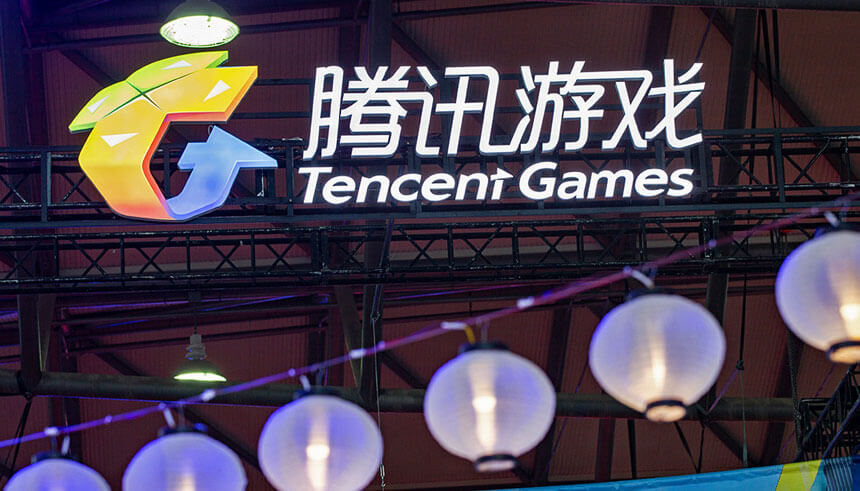US-Asia Business
US-China Market Watch: Increased CFIUS Review, China Video Games, “Free Guy”
By Angela Bao

Your monthly roundup of the latest US-China business and industry news.
U.S. increases security review of Chinese firms
The United States is increasing its review of “non-notified transactions” (deals between firms that have not been submitted for review and approval to the Committee of Foreign Investment in the United States) between U.S. and Chinese firms. Recently, the U.S. Treasury Department recommended that President Joe Biden block a deal between a Delaware chip company and a Chinese private equity firm.
The heightened scrutiny of such deals showcases not only the White House’s aims to protect Americans’ personal data and intellectual property, but that the “business and financial decoupling” between the U.S. and China is unlikely to roll back under the Biden administration.
It also comes on the heels of the U.S. ban of American companies investing capital in Chinese firms and restriction of sensitive technology being sold to China. Although these regulations do not mention China specifically, it’s primarily Chinese investors under review.
China tightens regulations on video games
In an attempt to further curb gaming addictions among young people, China has slowed down approvals for new online video games and has also “summoned” Tencent and NetEase, China’s two largest game developers. Beijing had previously limited people under the age of 18 to only three hours of game time per week, calling video games “spiritual opium.”
Shares of both Tencent and NetEase plunged after the announcement. The gaming ban comes as part of a larger regulatory crackdown on China’s private enterprises, which has affected sectors from tech, to rideshare, to education. The crackdown comes as part of President Xi Jinping’s plan for “common prosperity” and to build up economic and financial stability.
“Free Guy” tops China box office, Hollywood films down overall
Disney and 20th Century’s “Free Guy,” starring Ryan Reynolds, earned $18.3 million in its second weekend in China, marking its second week at the top of the Chinese box office. That pushes the film’s 10-day take in China to over $56 million and makes it Hollywood’s third-largest release in China this year, after “F9: The Fast Saga” and “Godzilla vs. Kong.”
Chinese regulators have loosened summertime restrictions on imported films, but Hollywood titles have not yet recovered. As of July 2021, Hollywood films have only earned $700 million in China, which is 66% lower than the same period in 2019. Experts primarily attribute the drop in revenue to a lack of Hollywood films that were delayed due to the pandemic. However, Chinese audiences’ tastes have also been shifting toward more local fare, with movies such as “Hi, Mom” and “Detective Chinatown 3” topping the Chinese box office so far in 2021.
BlackRock raises $1 billion for fully owned China mutual fund
Global asset manager BlackRock Inc. has raised about $1 billion (6.68 billion RMB) for its wholly owned mutual fund in China, called BlackRock China New Horizon Mixed Securities Investment Fund. In the five-day marketing period, the fund received orders from over 110,000 investors. The fund plans to allocate 60-95% of its assets in stocks and depository receipts to areas such as new energy, digital economy, and health care, among others.
BlackRock was the first firm to receive approval from China to sell mutual funds to Chinese individuals. As part of the trade deal with the United States, China had agreed to open up its financial markets. Fidelity International received approval from Chinese regulators in August to also set up a wholly owned mutual fund in the mainland. New York-based asset manager Neuberger Berman is also awaiting regulatory approval from Beijing to start its own mutual fund.
ByteDance looking to borrow $3 billion, NIO plans $2 billion U.S. stock sale
ByteDance, the parent company of popular short-form video app TikTok, is reportedly seeking to borrow $3 billion to refinance its debt. Other sources say that ByteDance is looking to raise between $4 billion to $5 billion to refinance debt and fund its overseas expansion.
In what could be the biggest U.S. fundraising plan since Chinese rideshare firm Didi Chuxing, Shanghai-based electric vehicle company NIO is planning to sell $2 billion of its U.S. depository shares ahead of its planned Hong Kong listing. The plan comes on the heels of the Chinese regulatory crackdown initiated after Didi’s U.S. public offering, which has severely limited the stock sales of Chinese firms. Analysts suggest that this sale could indicate delays in NIO’s Hong Kong listing.
Sign up for the Reach Further Newsletter
We’ll keep you in the know about the latest US-Asia business news and trends.
Suscríbase al boletín Reach Further
Lo mantendremos informado sobre las últimas noticias y tendencias comerciales entre Estados Unidos y China.


